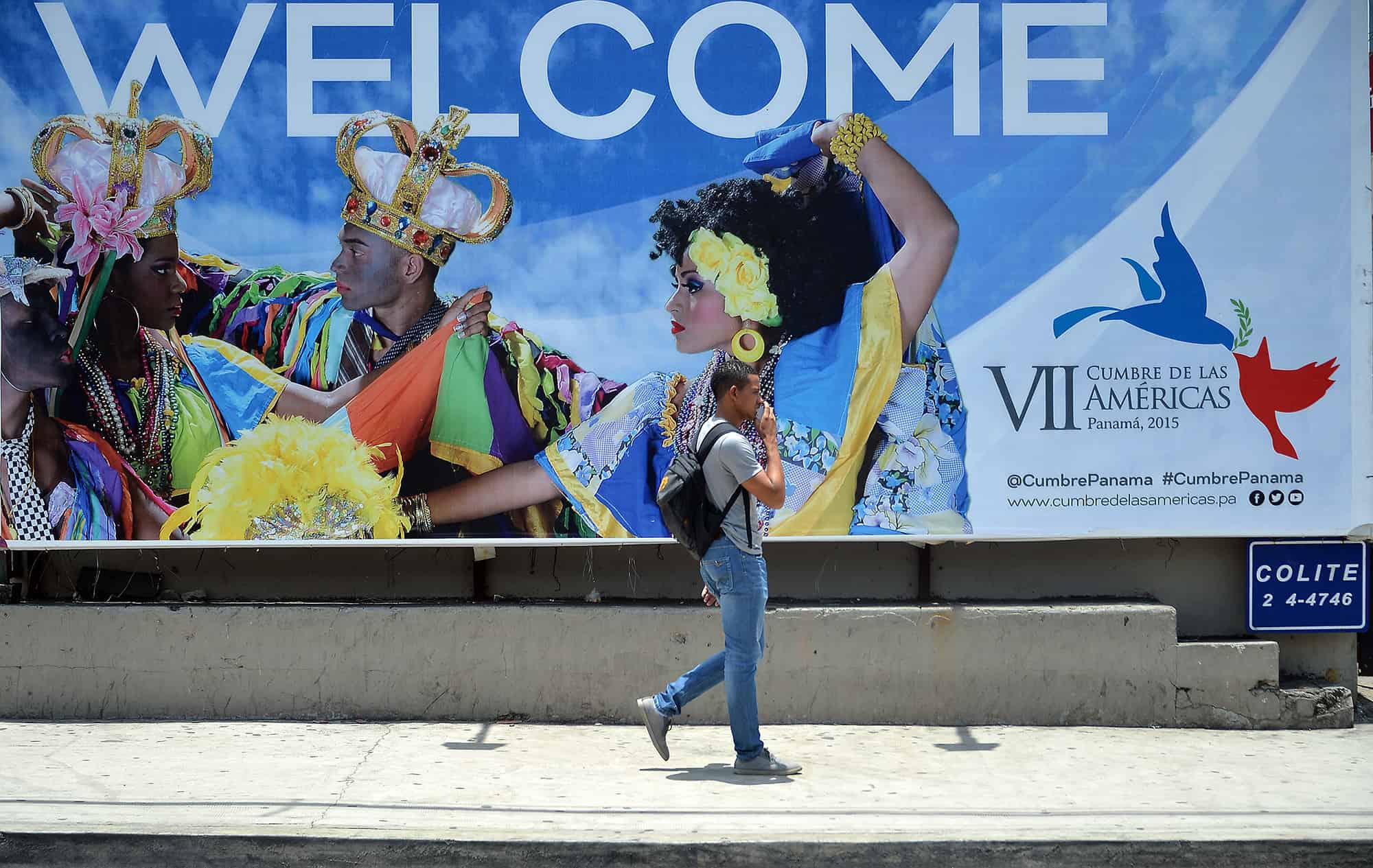WASHINGTON D.C. — President Barack Obama left the 2012 Summit of the Americas in Colombia an isolated world leader, berated by his Latin American counterparts over U.S. policies toward Cuba. This time will be different.
As Obama prepares to return to the summit in Panama on Friday, officials are building on his Dec. 17 decision to improve relations with the island that were broken in the 1960s.
Obama and President Raul Castro are expected to interact at summit events for the first time since shaking hands at a memorial service for Nelson Mandela in 2013, while the State Department could remove the Communist government from the list of state sponsors of terrorism this week.
“The summit would not have happened had there not been some movement with regards to Cuba and Obama knew that,” said Eric Hershberg, who teaches Latin American studies at American University in Washington. “He knew that he couldn’t go to Panama and not have this behind him.”
U.S. officials have said the new approach in Cuba will help smooth over relations with other Latin American nations, allowing for cooperation on issues like trade, energy, climate change and human rights.
Yet a March 9 decision to expand sanctions against Venezuelan officials for human rights violations, in which the South American government was labeled a threat to national security, could overshadow the two-day summit.
The sanctions give “a stick with which to beat the president” to Venezuelan President Nicolas Maduro, said Richard Feinberg, who teaches international relations at the University of California, San Diego, and helped organize the first Summit of the Americas in 1994.
“You’re not going to find any Latin American leader who’s going to stand up and defend the United States on that issue.”
Maduro, who has ramped up anti-U.S. rhetoric as declining oil prices and 69 percent inflation batter his economy, plans to present Obama with petitions signed by millions of Venezuelans decrying the sanctions.
Read all our Venezuela coverage
“Venezuela has taken the place of Cuba, temporarily,” as a rallying cause for some Latin American nations, former U.S. Commerce Secretary Carlos Gutierrez said in an April 7 interview.
U.S. diplomats will try to mitigate the opposition by highlighting its rapprochement with Cuba and playing up the historic encounter between Obama and Castro, Feinberg said.
Regardless, with much of Latin America struggling with slowing growth, leaders including Brazilian President Dilma Rousseff are arriving in Panama with plans to engage the U.S. more substantively than in previous years.
“Everyone will arrive with a more cautious tone and greater modesty in terms of their perspective on prosperity and equality in Latin America,” said former Costa Rica President Laura Chinchilla.
Latin America nations are struggling while the U.S. economy is seen as rebounding, she added.
Rousseff, overseeing a $2.2 trillion economy that Standard & Poor’s forecast will shrink 1 percent this year, said she would meet with Obama in Panama to schedule a visit to the White House later this year. Improving trade is on their agenda after China surpassed the U.S. as Brazil’s biggest trading partner in 2009.
Rousseff had canceled a visit to Washington in 2013 after revelations that the U.S. National Security Agency spied on her.
The leaders of El Salvador, Guatemala and Honduras will be looking to Obama for signs that more than $1 billion in support to fight crime and drug trafficking will help boost their economies and stem a surge of children toward the U.S. border.
Panama and Costa Rica are seeking entry into the Trans-Pacific Partnership, a proposed regional trade deal backed by the U.S.
Business leaders interested in investing in Cuba will be watching Obama and Castro’s body language and parsing their statements for hints about how quickly the trade embargo against the island may end, said Pedro Freyre, chairman of the international practice of Akerman LLP in Miami.
“It’s sort of voyeuristic,” said Freyre, who teaches a seminar on Cuba at Columbia University’s law school. “Is there going to be a handshake? Is there going to be a two-hour meeting? Is there going to be a secret meeting?”
At stake is U.S. access to a nearby market of 11 million people, which has been effectively open to competitors from around the world, including U.S. allies, for decades.
Browse our recent Cuba coverage
Delta Air Lines, United Continental Holdings and American Airlines have all signaled that they are interested in offering commercial flights to the island. American Express and MasterCard said they are moving to lift a block on U.S. bank card transactions. Airbnb, which links home or apartment owners with visitors, announced this month that it is offering about 1,000 listings in the country.
Getting past the debate over Cuba “takes a huge irritant out of our policy for Latin America and the hemisphere,” Roberta Jacobson, assistant secretary of state for Western Hemisphere affairs, said in an April 3 speech at the Brookings Institution in Washington.
“You can do much better by using the carrot than using the stick,” former Mexican President Vicente Fox said March 31 at the Heritage Foundation in Washington. “We human beings and nations respond to dialog, respond to principals, respond to discussions.”
© 2015, Bloomberg News






